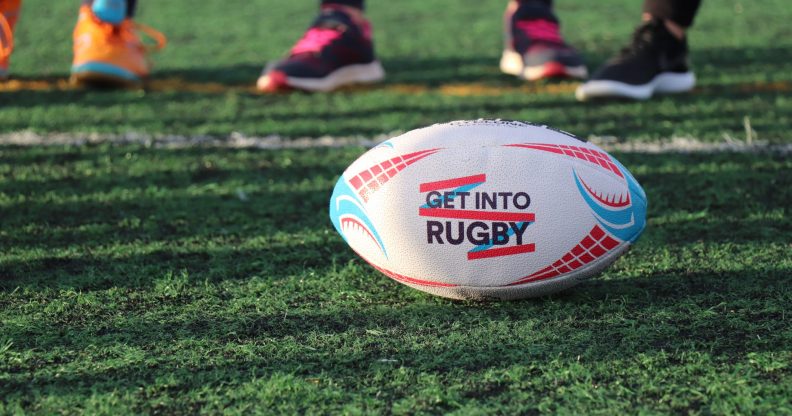World Rugby ‘considers outright ban on trans women’ after inviting anti-trans campaign group to weigh in on current rules

Stock photo. (Unsplash)
The world governing body for rugby is reportedly considering banning trans women from playing on women’s teams after a forum earlier this year was attended by bodies including an anti-trans campaign group.
A working group set up by World Rugby has compiled a 38-page draft document which argues that trans women should be banned from playing the sport, The Guardian has reported.
The document insists that trans women have a “significant” physical advantage over cisgender women.
It goes on to recommend that trans women be completely banned from playing on women’s rugby teams, claiming that current rules — which are based on those introduced by the International Olympic Committee (IOC) in 2003 — are “not fit for purpose”.
Trans men would be allowed to play rugby alongside cis men under a planned rule change.
The group’s issue with trans players in sport is apparently limited to women. They recommend that trans men should be allowed to play against cis men, but suggest that they should first undergo a physical assessment and sign a consent form.
“Current policies regulating the inclusion of transgender women in sport are based on the premise that reducing testosterone levels found in biological females is sufficient to remove many of the biologically-based performance advantages,” the document says.
“However, peer-reviewed evidence suggests this is not the case.”
The document goes on to claim that cis women will play at a greater risk of sustaining an injury if trans women are allowed to participate.
Under current rugby rules, trans women must lower their testosterone levels significantly before they are allowed to play.
No one should be denied the lifesaving power of sport.
LGBT+ sporting organisation Athlete Ally told PinkNews that they came together with almost 375 members in 2017 to call on World Rugby to stand with trans athletes.
“Today, as World Rugby considers an outright ban on trans women athletes, we urge the World Rugby Working Group to draw from already existing inclusion policies developed by medical experts and designed to promote safety and fairness for all, such as the IOC guidelines which have been in place for years without issue,” Athlete Ally said in a statement.
“Trans women play sports for the same reason cisgender women do: for the love of the game, and the love of the lifelong community it brings. No one should be denied the lifesaving power of sport.”
World Rugby forum examined trans inclusion.
The 38-page draft document emerged from a World Rugby forum held in London earlier this year set up to examine debates surrounding trans people in sport.
A number of academics and organisations participated in the forum, including anti-trans campaign group Fair Play For Women.
Trans man Verity Smith also addressed the forum where he said changes to the current policy would risk shutting trans players out of rugby altogether.
“I don’t think it’s dangerous,” Smith told Sky News at the time.
“Sport is for everybody, I’ve had to play women over a foot taller than me. I’ve had to play women a lot bigger size-wise than me. So why would it be a danger?”
“We all go into sport, rugby especially, knowing that it’s a contact sport. When you go into international games, look at your scrum half, look at your front row, over a foot and a half difference sometimes.”
The forum ultimately reached agreement on the “physiological basis of performance differences between men and women”.
Last year, in response to controversial claims made by British Olympic swimmer Sharron Davies about trans women in sport, three LGBT+ sporting organisations released a joint statement debunking some of the common myths about trans athletes.
The statement, which was compiled by Pride Sports, LEAP Sports Scotland and LGBT Sport Cymru, said the IOC rules were doing their job in ensuring fairness in sport.
They also criticised the notion of “male sex advantage” – a term often employed by anti-trans activists in discussion around sport – and said it is “problematic” as it “implies that all men are stronger and faster than all women”.

